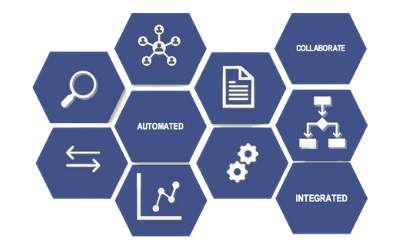Invoice Management Challenge
The client is a publicly-traded electrical specialty contractor. They have multiple office locations and defined business segments. The company’s revenue was steadily growing year-over-year and was expected to continue in that trajectory. With the revenue growth, the company had an influx of invoice volume and an expanding list of suppliers. The invoice capture, routing solution, and business processes were not serving the company well. This was resulting in high administrative cost in processing invoices, lags in job costing, vendor payment delays, and an increased strain on vendor relationships. The headcount was expanding within accounts payable and operations support staff, including contract positions to work through the invoice backlog. At the top end, the company was supporting 48 FTEs to process an average of 32,000 invoices monthly. This did not account for personnel involved in oversight and invoice approval. The cost to process a single invoice was well above the average $15.95 companies spent without any automation in place. AP staff were spending 80-90% of their days handling invoices and managing supplier inquiries. The administrative costs and time commitment by staff were not a feasible long-term solution.
In addition, the software solution required a considerable level of IT support and troubleshooting; particularly the OCR technology. The company’s IT resources were being stretched and this was impacting other IT strategic initiatives.
The client approached Burger Consulting Group (BCG) for assistance. Burger Consulting Group’s team was engaged to assess their current information systems, specifically focused on their Procure-to-Pay function and lead a strategic planning phase. This work included conducting a level of software research into the capabilities within the existing solution.
Burger Consulting Assessment
BCG’s assessment determined that the invoice routing and approval solution in place was not optimal for the client’s functional requirements and software needs. The company’s transactional volume and complexity was not suitable for the software in place. Specifically, the invoice capture, automated workflow decisions, invoice management, and dashboard capabilities were insufficient.
The current solution used OCR template technology and with the increasing vendor database, a substantial amount of time was required to set up the specific zonal locations to automate invoice capture. The workflow engine required manual touchpoints by employees to move invoices through the approval sequence. Invoice management tools were not sufficient to set up standardized approver response codes, automate & escalate unapproved invoices, and detect duplicate invoices in the system. These limitations resulted in manual intervention for routine tasks, communication being handled outside the system in emails, calls, etc., and general frustration within the organization.
The software solution also was not designed for the construction industry. This made it challenging to handle industry-specific requirements like compliance tracking, sales tax determination, and field accessible via a mobile application.
The assessment also evaluated the business processes in place. The findings, which management agreed with, were that the company’s procurement guidelines, particularly around purchase order requirements and invoice approval thresholds were not well-defined. This resulted in AP being unclear about workflow approval requirements and a high volume of exception invoices which needed employee’s attention to process.
The Burger Consulting Group assessment provided a clear vision of the fundamental issues impacting the invoice processing and approval function. Management was able to quickly agree that a solution replacement was required. In collaboration with the client, an overall strategic plan was developed, including priority requirements, cost budget, and selection committee.
Solution
The client commenced a software selection to replace the existing solution. The selection committee utilized Burger Consulting Group’s expertise to assist with the initiative. The priority objectives included better data capture technology and increased efficiency & automation in the invoice management process. Additionally, a robust level of data security and underlying technology was required that supported building a seamless integration to the existing ERP to automate data exchange.

Clear goals and specific business solution requirements were defined as a guide for the selection. A comprehensive analysis of each proposed solution and vendor was conducted; including vendor demonstrations. Burger Consulting Group managed the required activities and coordination with the vendors. The process ran according to budget and schedule. A best-in-class solution was ultimately selected as the best fit for the company.
Client Benefit
An independent assessment gathered the relevant information for the company to clearly understand the challenges in the invoice capture and routing function. The Executive Team was able to make an informed and confident decision to replace existing software. Leveraging Burger Consulting Group expertise, the company quickly established a vendor short-list; eliminating the risk of being distracted and overwhelmed during the evaluation phase. The short-list included industry-specific solutions that utilized Artificial Intelligence (AI), Robotic Process Automation (RPA), and machine-learning technology. Burger Consulting Group’s selection methodology also provided a structure for the selection committee to remain focused on the high priority requirements and make an informed decision.
With the replacement of the invoice capture and routing solution, the client can ultimately eliminate up to 75% of the manual touchpoints. With advanced OCR recognition technology, the client’s higher success rate on reading invoice data will reduce the lag time on processing invoices. This will yield a higher automation rate. Better utilization of system-driven tasks like workflow decisions, pending approval escalations, eliminate manual intervention and expedite invoice movement through the system. The enhanced features to standardize approval/reject and redirection capabilities, provide clear communication and quicker response rates in troubleshooting exception invoices. With the technology better aligned to the company’s requirements, the client has the foundation to exceed industry average performance measurers on invoice processing. The company will now be able to shift previous administrative spending to invest in more value-added activities.

